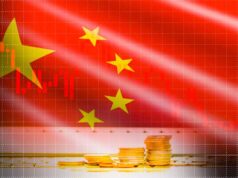Dubai has officially approved Ripple’s RLUSD stablecoin for use within the Dubai International Financial Centre (DIFC). This marks a significant milestone in the city’s broader blockchain strategy. The green light from the Dubai Financial Services Authority (DFSA) places RLUSD among a limited group of crypto assets recognized under the DIFC’s regulated framework. The approval highlights the RLUSD stablecoin’s emerging role in tokenizing real estate and enterprise-level financial services.
Ripple RLUSD, launched in December 2024, is a fully backed, transparent stablecoin built on both the XRP Ledger and Ethereum. Its regulatory recognition in Dubai enables Ripple to begin deploying RLUSD in institutional finance applications and smart contract-driven real estate markets. This aligns with Dubai’s long-standing ambition to become a global crypto hub by fostering compliant innovation.
RLUSD Gains Traction in Dubai’s Regulated Crypto Ecosystem
With this latest DFSA approval, RLUSD joins a select group of tokens authorized for use in the DIFC. The DIFC is a special economic zone governed by English common law. The move reinforces Ripple’s stablecoin ambitions and aligns with Dubai’s broader crypto regulatory approval regime. The DFSA has been actively expanding its framework to accommodate asset-backed tokens with verifiable reserves and transparency. Ripple stated that RLUSD will meet these criteria.
This approval builds on Ripple’s deepening engagement in the region. In August 2024, Ripple partnered with the Dubai International Financial Centre Innovation Hub. The partnership aims to accelerate blockchain development and digital asset adoption across the UAE. This collaboration, alongside Ripple’s existing regional office within the DIFC, positioned the company to proactively align its products with Dubai’s regulatory and institutional ecosystem. It prepared the groundwork for RLUSD’s smooth regulatory entry.
This development also reflects Ripple’s broader Middle East expansion. While RLUSD remains in its early adoption phase, the company has confirmed the token will be fully backed 1:1 by cash and equivalents. With Dubai’s early regulatory endorsement, RLUSD may now serve as a foundation for cross-border payments and enterprise-grade blockchain applications in the region.
Tokenization of Real Estate on the Horizon
One of the most significant real-world applications for the RLUSD stablecoin in Dubai lies in real estate tokenization. Reports indicate that Dubai’s Land Department is actively working with blockchain companies to enable digital property transactions and smart contract-based ownership transfers. The presence of a DFSA-approved enterprise stablecoin like RLUSD could spur this transition by providing a compliant on-chain settlement layer.
Sources suggest pilot programs related to tokenized property sales and automated leasing agreements within the DIFC may soon use RLUSD. These initiatives align with Dubai’s vision for a more efficient, digitally governed economy powered by blockchain-based infrastructure.
Ripple’s Global Strategy Embraces Regulatory-First Markets
The Ripple stablecoin Dubai approval complements the company’s recent efforts to reposition itself as an enterprise blockchain provider. By focusing on regulated markets, Ripple appears to adapt its product offerings to jurisdictions encouraging financial innovation within legal boundaries. RLUSD is expected to serve both institutional liquidity needs and emerging use cases in tokenized capital markets.
This recognition also solidifies Dubai’s position as a leading destination for regulated crypto ventures. Unlike other jurisdictions where stablecoins often operate in legal grey zones, the DIFC crypto regulation offers legal clarity that appeals to global firms like Ripple.
A Gateway for RLUSD to Scale Internationally
The RLUSD stablecoin now stands at the intersection of regulatory clarity and technological application. With DFSA approval in hand, Ripple positioned itself well to use Dubai as a launchpad for the broader roll-out of its enterprise-grade token. Whether in real estate tokenization, B2B settlements, or sovereign collaborations, RLUSD is poised to play a central role in Ripple’s international expansion.
>>> Read more: VARA Red Flags Meme Coins for Investors in Dubai
As Dubai continues implementing its blockchain strategy, RLUSD’s integration into DIFC’s legal and economic ecosystem may serve as a model for future stablecoin approvals elsewhere.
Readers’ frequently asked questions
Who regulates crypto tokens and stablecoins like RLUSD in Dubai?
The Dubai Financial Services Authority (DFSA) regulates crypto tokens in the Dubai International Financial Centre (DIFC). The DFSA oversees financial activity within the DIFC under a framework based on English common law.
Can individuals use RLUSD for everyday transactions in Dubai?
As of now, DFSA has approved RLUSD for use within the DIFC under its regulatory regime. This approval focuses on institutional and enterprise applications. There is no indication that it will extend for consumer use in retail settings.
What criteria must a stablecoin meet to gain DFSA recognition?
The DFSA recognizes stablecoins that meet specific requirements, including full asset backing, clear auditability, and operational transparency. The DFSA maintains a list of recognized crypto tokens that meet its standards.
What Is In It For You? Action items you might want to consider
Track RLUSD integration into enterprise platforms
If you follow developments in tokenized finance or are an enterprise user, monitor how RLUSD is rolled out in DIFC pilot programs, especially in real estate and B2B payments.
Evaluate jurisdictional opportunities for regulated stablecoins
RLUSD’s approval in Dubai may set a precedent for other financial hubs. Traders and fintech founders should watch for similar regulatory frameworks in markets such as Singapore or Hong Kong.
Monitor Ripple’s strategic expansion in the Middle East
Ripple is increasingly aligning with pro-crypto regulatory jurisdictions. RLUSD’s deployment may provide insight into Ripple’s broader roadmap for institutional finance and sovereign partnerships.










